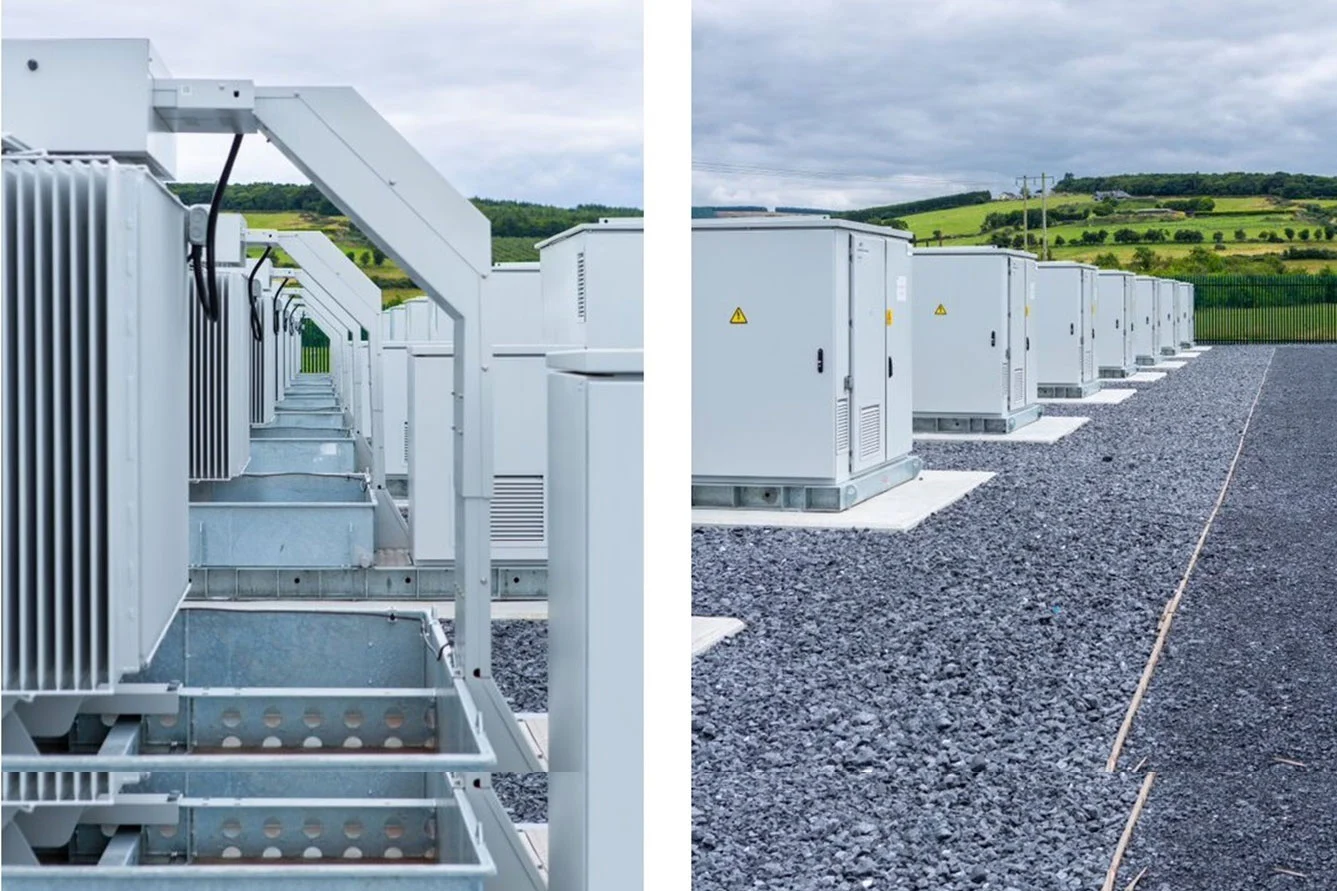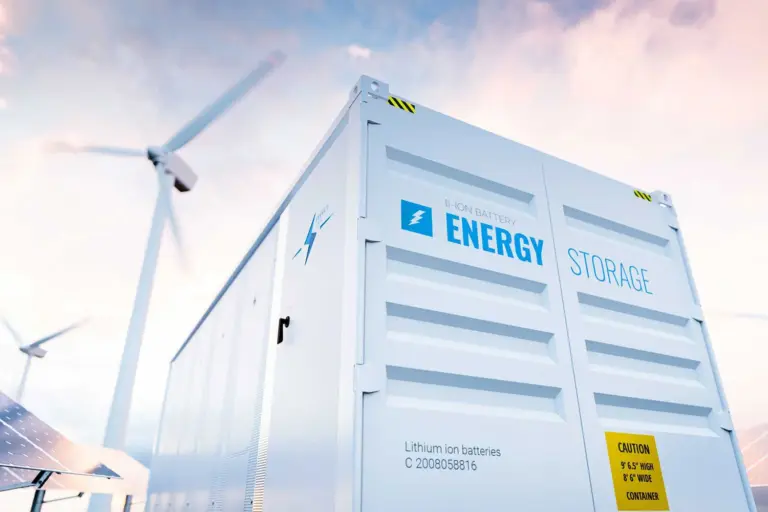
How GSC is Improving Investor Confidence in the Irish Market
As one of the first to support fundraising and deployment of large-scale energy storage assets in Northern Ireland (NI) and the Republic of Ireland (ROI), Gore Street Capital has played a material role in establishing the market while contributing to the decarbonisation of the all-island system. The diversified approach taken on behalf of the UK-listed Gore Street Energy Storage Fund (LSE: GSF) first took GSC to Ireland in 2019 and, in the years since, we have built 130 MW of energy storage capacity with another 180 MW to follow by the end of 2026.
GSC, therefore, has considerable experience working within the all-island energy storage market since the beginning of its rapid build-out. While we have been successful in delivering for our client, its investors, and the island’s combined energy system, we are fully aware of established barriers to future investment that have emerged as part of the ongoing development of a new energy storage market and are actively working to overcome them.
Much of the Irish portfolio’s success to date has been through the DS3 programme, a suite of ancillary services designed to increase the amount of renewable energy on the all-island power system. Delivery of these services has regularly secured some of the highest single-market revenues from across GSF’s portfolio, which is present in five uncorrelated markets.
The future of this programme, however, is currently uncertain as new arrangements have already been delayed by two years. Even if introduced in 2026/207 as required by regulatory obligation, transparency over how the services will be procured, what is needed to fulfil the system’s requirements, and the risks to existing commercial operations and strategies will need to be provided to reduce uncertainty for investors.
The wait for these answers is particularly pressing in the context of non-firm grid connections granted to energy storage projects in advance of completion of grid reinforcements that would allow firm access to be confirmed. Operators like GSC are, therefore, reliant on delivery of large infrastructure projects out of their control before they can engage in the full range of possible commercial activities. GSF’s projects have previously faced delays in achieving firm access due to grid improvement projects not being delivered on schedule, specifically the Greenlink and North South interconnectors.
.jpg)
With little recourse to receive compensation for delays incurred by other major infrastructure works, non-firm connected assets are unfairly impacted and obstructed from relieving grid constraints. This increases risks associated with energy storage projects that are supremely equipped to deliver system benefits.
These systems are instead subject to the scheduling and dispatch process (SDP), which transmission system operators EirGrid and SONI coordinate from their respective control centres to manage the close to real-time planning and the real-time operation of units on the power system. As in Great Britain’s Balancing Mechanism, battery energy storage systems face under-utilisation in the SDP and system operators have little confidence over the timeline for improvements. Without confidence of dispatch, and potential exposure to high imbalance pricing when attempting trade in the wholesale market, investors may be wary of taking on the risk imposed by a system that seemingly has little prospect of change.
As a member of Energy Storage Ireland (ESI), GSC recently wrote to both the NI and ROI utility regulators to support the association’s proposed solution of a ‘deemed firm’ status that could be applied to non-firm battery energy storage systems in advance of SDP market fixes. This would allow all disadvantaged batteries to participate in wholesale ex-ante markets and deliver price benefits for consumers while improving confidence in market access for investors.
The combined energy system of NI and ROI remains an extremely important market for GSC and its client, both now and in the future when we will bring new capacity online. We will continue to work with ESI, the all-island grid operators, and their regulators to tackle long-standing barriers to investor confidence. This will allow energy storage to thrive in the all-island market and continue to deliver value for system operators and consumers while playing material role in the decarbonisation of its power supplies.

